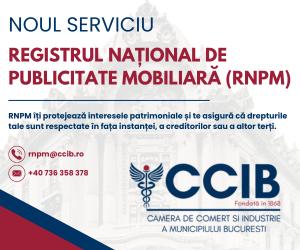Representatives of the gambling industry in our country claim that the increase in taxation of winnings and new taxes imposed on companies in the field will lead to the contraction of this industry and the movement of players to the black market.
Contacted by the BURSA newspaper, Cristian Pascu, president of the Association of Organizers and Producers of Games of Chance, told us: "We have had consultations these days with the decision-makers from the Government, it is true under the pressure of time, regarding the expected increase in taxation of the gambling sector. Regarding the type of slot machine game, the so-called "păcănele”, I drew the attention of the political decision-makers that, given the current economic situation, any increase in taxation (it would be the third in the last 4 years, in addition to the ban in localities with under 15,000 inhabitants) would not be sustainable from the point of view of the survival of the majority of local operators of small and medium-sized entrepreneurial size. More precisely, a tax increase would bring additional revenues to the budget only on paper. The result in practice would be a reduction in the number of organizers and the number of slot machines in operation”.
The AOPJN representative also told us that he had sent, together with those from Exprogame, a joint material to political decision-makers in which they proposed several measures to generate new budget collection resources, combat gambling addiction, effectively combat the black market and ensure competitive tax fairness for small and medium-sized companies in the field.
Cristian Pascu specified: "Our proposals are:
1) Regulation and reintroduction into operation exclusively of limited-risk machines in the currently prohibited area with under 15,000 inhabitants.
2) Percentage taxation of income also for this type of gambling - which would replace the current flat-rate taxation.
In order to secure the state budget's revenues, the percentage tax on income would be applied in the system of X percent of income, but not less than an agreed amount, at least at the value of the current flat-rate tax”.
The AOPJN president also indicated that the expected increase in taxes, also in a flat-rate system, for slot machine taxes would lead to the exit of a large number of operators who would fall below the profitability threshold.
"Under these conditions, although we understand the difficult situation we are facing as a state due to the budget deficit and we wish to be in solidarity with the effort to overcome this crisis, we draw attention to the fact that a simple measure to increase taxes in the retail slot-machine sector in the current flat-rate taxation system, without taking the important step towards percentage taxation, would maintain the situation of unfair competition between operators in the field who have substantially different incomes. The application of our proposals would lead to a taxation system with a broadening of the tax base and to a budget collection proportional to the income achieved. On the contrary, a fiscal increase applied by simply increasing flat-rate taxes would have the opposite effect to that sought by the state, it would lead to an even stronger contraction of the legal gambling market, a decrease in revenues generated for the state budget and the development of the black market. We note that the dynamics of the retail slot-machine sector are already in sharp decline, in the last two years the number of machines has decreased by from approximately 90,000 to almost 50,000, and the number of organizers from 240 to only 80”, said Cristian Pascu.
Odeta Nestor, president of the Association of Remote Gambling Organizers (AOJND) told us: "Although we understand that measures to increase budget revenues are urgently needed, as the business environment needs to be in solidarity with the authorities and make a financial effort, we draw attention to the fact that a new tax increase will lead to significant reductions in profits, to values that question the opportunity to carry out the activity, ultimately generating market contraction and the registration of lower budget revenues than those projected by the authorities. Also, the tax increase will lead to the proliferation of the black market, with negative effects both on budget revenues, but also in terms of fulfilling the government objectives of protecting individual participants, especially vulnerable people”.
He specified that, under the current regulation, online gambling organizers already have numerous annual payment obligations to the state budget or the budgets of public authorities/institutions, such as: the fee for the gambling organization license worth 300,000 euros, equivalent in lei; the fee for the authorization to operate the activity, worth 21% of gross income, but not less than 400,000 euros; the contribution to the National Cultural Fund worth 0.5% of gross income; contribution to the anti-addiction fund in the amount of 500,000 euros, equivalent in lei; tax on participation fees in the amount of 2% of the total deposits in the game account; profit tax in the amount of 16%.
The AOJND representative specified that, in order to guarantee these payment obligations, the organizers must establish the guarantee fund in favor of the tax authority, in an amount between 5 million and 7 million euros, either by freezing these amounts or through credit products offered by third parties, the costs related to them being between 400,000 and 500,000 euros/year. Under these conditions, the financial effort that gambling organizers must allocate to fulfill fiscal and parafiscal obligations represents (in the current regulation) at least 30% of gross income, to which are added operational expenses, for example, expenses with suppliers, promotion expenses and administrative expenses, the gross profit representing 2-4% of the value of gross income, similar to that registered in other fields of activity.












































